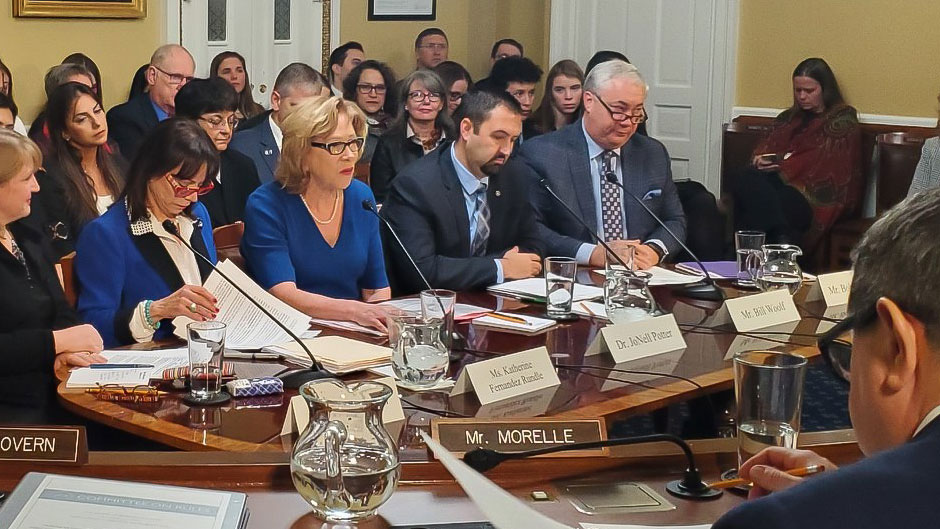It was a first, a request no one had ever made of JoNell Potter in all her years of working in the medical field.
Six years ago, local law enforcement officials in Miami and members of South Florida’s Human Trafficking Task Force contacted the University of Miami professor and asked her to provide health care services for human trafficking victims.
What she encountered led her on a new journey.
“I realized these survivors had experienced years of abuse and medical neglect and had tremendous health care and mental health needs,” recalled Potter, a professor of clinical obstetrics and gynecology at the Miller School of Medicine. “Their health care needs, frankly, were beyond the scope of anything we had in place.”
So she embarked on a mission to solve that problem, helping to start a new clinic dedicated to the health care needs of those victims.
Today, THRIVE (Trafficking Healthcare Resources and Intra-Disciplinary Victim Services and Education), is a one-stop shop for human trafficking victims and survivors, providing everything from primary and gynecological care to psychiatry and behavioral health services.
The U.S. Department of Homeland Security and the Miami-Dade County State Attorney’s Office refer victims to the clinic.
“We saw an emergency, and we responded,” Potter said.
But while THRIVE, a collaboration between UM and the Jackson Health System, has made tremendous strides, more needs to be done at all levels to assist human trafficking victims, Potter testified Wednesday before a U.S. House Committee on Rules Subcommittee on “Solving an Epidemic: Addressing Human Trafficking.”
Led by Congresswoman Donna Shalala, UM's past president, the hearing focused on the complexities of combating human trafficking, ways the federal government can assist local law enforcement, and the additional resources needed for prevention. Miami-Dade State Attorney Katherine Fernandez Rundle and three other expert witnesses also testified.
“How do we make better laws? How do we deliver better federal resources? How do we better provide support for survivors of human trafficking?” Shalala, who was secretary for health and human services in the Clinton administration, said in opening the hearing.
Potter said what survivors need most is mental health care. “All of our patients, every one of them, has posttraumatic stress with all of the classic symptoms—flashbacks, nightmares, anxiety, depression, and suicide attempts,” she said, lamenting that there is “simply not enough [mental health care] available.”
She also called for education and awareness, especially for physicians who encounter human trafficking victims in emergency rooms and other health care settings.
“State legislatures are working hard to mandate continuing education on human trafficking. Educating and awareness is the key,” she said. "It’s amazing to me how many people do not understand what human trafficking is and what to do if it’s in front of them. Doctors are not equipped to care for the survivors we are seeing today. We don’t know best practices. We don’t know best approaches.”
Potter noted that many of the patients who receive care at THRIVE “are coming from regular surburbia, middle-class homes. And they’re being lured because they want things, and the traffickers entice them. They will trade sex for phones.”
Rundle said her office has achieved significant progress in the last seven years in combatting human trafficking, working with more than 700 victims and filing over 600 criminal human trafficking-related cases. The youngest victim her office has worked with was only 12, she noted.
New investigative and prosecutorial methods and a network of victim services are needed, Rundle said.
“Super Bowl LIV is taking place in my community in less than two months. While we have been preparing for the surge this may bring, we could use more help,” Rundle said, alluding to the claim that increased sex trafficking accompanies the Super Bowl. “We fear that traffickers will be coming to our city to make money during the Super Bowl.”
Noting that THRIVE has been replicated in another Florida community, Potter urged Shalala and others at the hearing to support funding to establish demonstration projects designed to evaluate the most effective models of medical and mental health aftercare for human trafficking survivors.
